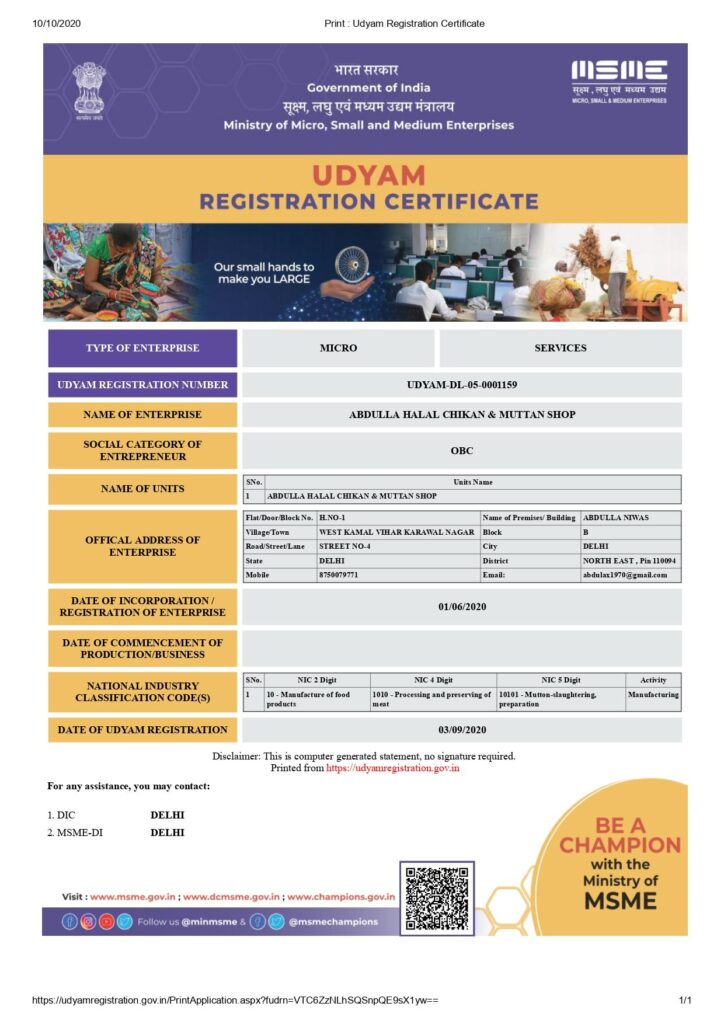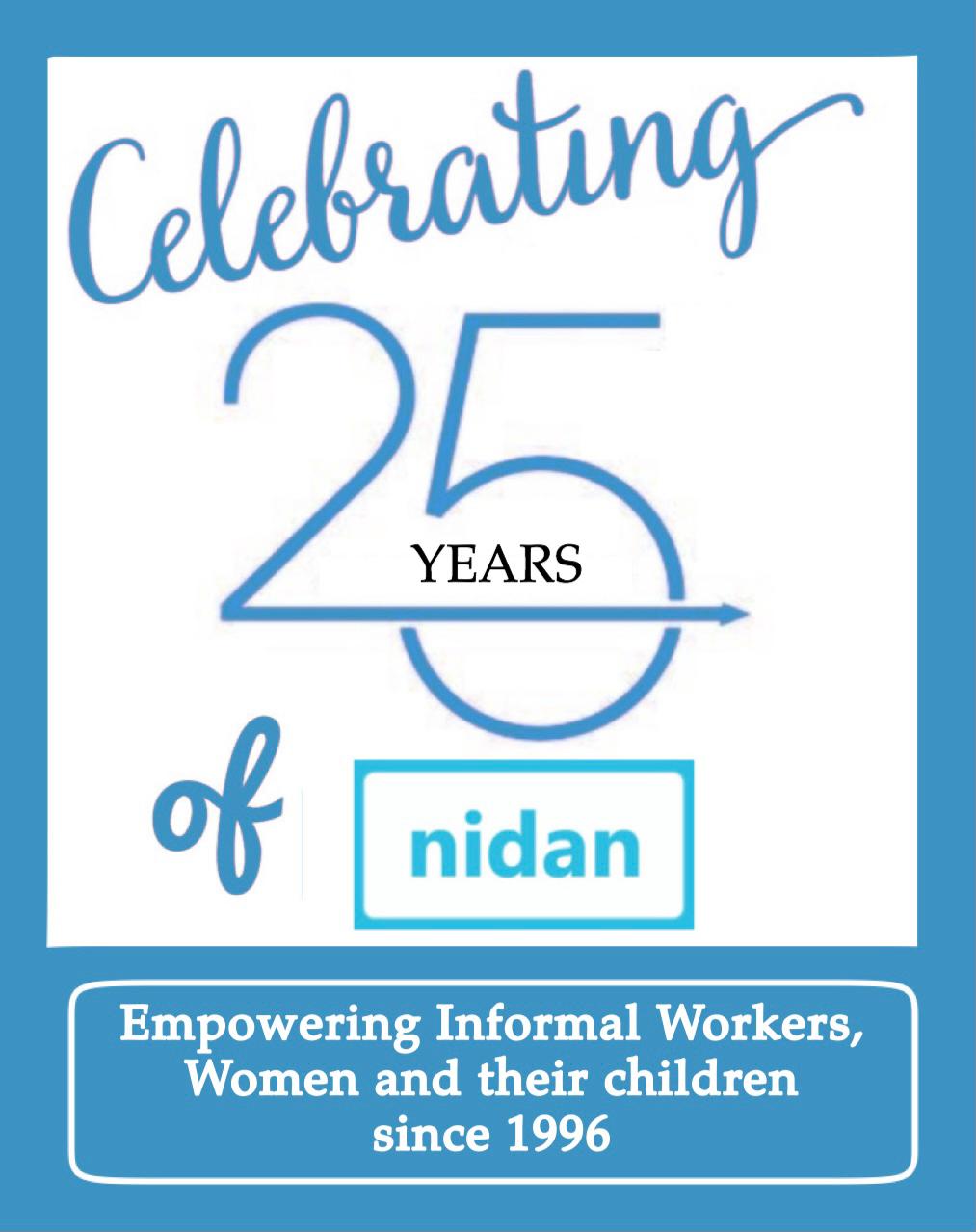Entrepreneurship Development Program for Microentrepreneurs
Background
Covid-19 has caused severe economic shocks globally, with businesses being affected on account of reduced consumer demand and disruptions to supply chains. MSMEs, particularly the long tail segment, have borne a disproportionate brunt Another notable aspect of the current situation has been the disproportionate impact of the crisis within the MSME sector itself. The vulnerability of this segment is further accentuated by several perennial challenges known to characterise the MSME sector such as:
- Cut-off from systemic support: Most of the micro-entrepreneurs pursue their journey due to various life & societal issues, being completely cut off from all forms of institutional, systematic support including, but not limited to, access to credit, access to technology, value chain linkages, policy support, and skill development. Hence, most micro-entrepreneurs are not only extremely vulnerable to systemic shocks such as the current pandemic, but also struggle to succeed under normal conditions.
- Inconsistent, broken cash flows: Micro-businesses are typically cash dependent and rely on their day-to-day cash flows for liquidity.
- Lack of registration and credit history: The Government of India’s stimulus package is only applicable to businesses that have past credit history; raising low-collateral debt is exceedingly difficult for micro-enterprises without past credit lines.
- Inability to capture new opportunities: The changes in market demands have rendered various goods and services unviable in the current scenario. Micro-enterprises have limited capabilities to independently identify opportunities to create meaningful business pivots.
- Lack of digitisation across businesses: micro-enterprises in India are characterised by major process inefficiencies. While there has been a massive uptake of smartphones / internet in India, the usage of important digitised business management tools has been extremely limited.
Therefore, the need of the hour is solutions that not only mitigate the impact of Covid-19 on the micro entrepreneurs, but also build their capability to manage their business to achieve business sustainability and growth and prepare a MSME RECOVERY PLAN
Background about Microentrepreneurs
Developing a entrepreneurial mindset is important because it will help the state to tide over the concerns regarding economic slowdown and unemployment. Entrepreneurship is important because it does not only makes wealth but has the ability to improve standards of living and other related businesses. Nidan has been working since two years on entrepreneurship development in Delhi ,but still there is broad area to work upon beause of the dropout rates. The government of India has also taken major steps in the form of initiatives and schemes to promote entrepreneurship in rural and unban areas.But the areas which needs attention is the adequate documents and registrations to avail the respective government scheme.This onus has been taken by Nidan to educate and train them so that in the near future they will help themselves and other related associates in running their business. Through this program, we want to build confidence in our aspiring entrepreneurs so that they have the ability to excel in the professional world with the use of their innovative ideas. The programme will help them identify business opportunities, assessing resources for setting up a business, and learning from the life of successful entrepreneurs in the society. The vision is to create an entrepreneurial mindset in people so that they become ‘job creators’ instead of ‘job seekers’.
Not every one excels in their business. Some of them reach high in their work with self exploration and guidance by their well wishers, but most of self workers stuck at a point where their earning gets limited and they do not have an idea to expand their work. Thus, their income level becomes stagnant or incurs a loss.
Nidan is a national non for profit making organization has been pulling these self workers at the next level in their business with the help of entrepreneurship development training and follow up with them as well as help them to resolve their current issues and problem like marketing, current bank account, credit linkage, pan card and business name /Logo etc. In their business which are creating barriers.
Nidan mobilizes the self workers on a place to explore their ideas and understand what other people doing for their livelihood as well as attend the training on entrepreneurship development to enhance their capacity to learn new things and execute in their work to step up on the next level in their work.
Micro-Entrepreneurs and MSME Recovery Plan.
Nidan has designed to enable recovery and adaptation of these micro-enterprises in specific community sectors and geographies – to the economic disruptions caused by the Covid-19 pandemic.
Focus points of delivery of the MSME recovery programme:
- Onboarding of entrepreneurs
- Formalisation through social protection and work-related entitlements
- Training and preparedness support to entrepreneurs
- Basic digitisation support
- Access to credit
- Support business recovery through adaptation and income diversification.
Activities
1. Increase outreach through technology – Nidan Setup the helpline support system for prospective micro entrepreneurs. A phone number was publicized through print/other media campaign of Nidan. Pamphlets were distributed and helpline number was shared through mass messaging, and social media and also through local outreach programmes.
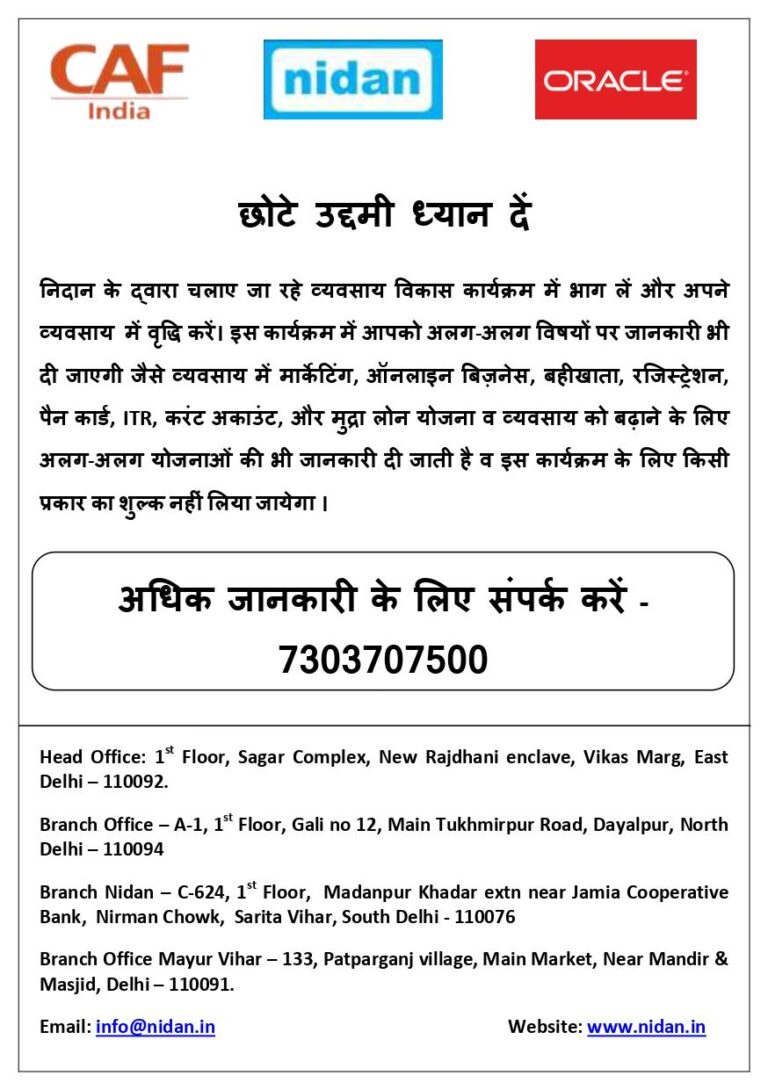
2. Missed call, call back – In Delhi – after receiving missed calls from various sources, a call back or a visit is made by the EDC outreach worker to get information in detail. Through toll free number, the calls from East, south and North districts, call were diverted to office in Mayur Vihar/ Preet Vihar Office, Madanpur Khadar office or Tukhmirpur office and field officer from the area visited the self worker.
3. Filling detailed expectation form – Expectation form is filled online or through mobile application by the field executive from the aspirants and the flowchart would be explain to aspirants for understanding of steps, new sales and various aspects of setting up and running a successful enterprise.
4. Assessment by desk officer – a desk officer speaks to the concerned person for each lead and makes him/her aware about various ways in which he /she can set up an enterprise including skill training, fundraising etc. Nidan have three desk officers – one catering to North Delhi, One to South Delhi and one to East and West Delhi.
5. Training Module:- A “10 pointer” agenda was made so to ensure the holistic development of the microentrepreneurs in the best way possible. This 10 pointer agenda focused in a step by step development of microentrepreneur with its end goal to make them get financial entitlement either through banks or cooperative societies. This new 10 pointer agenda was designed after a series of meetings and consultations with the various stakeholders.
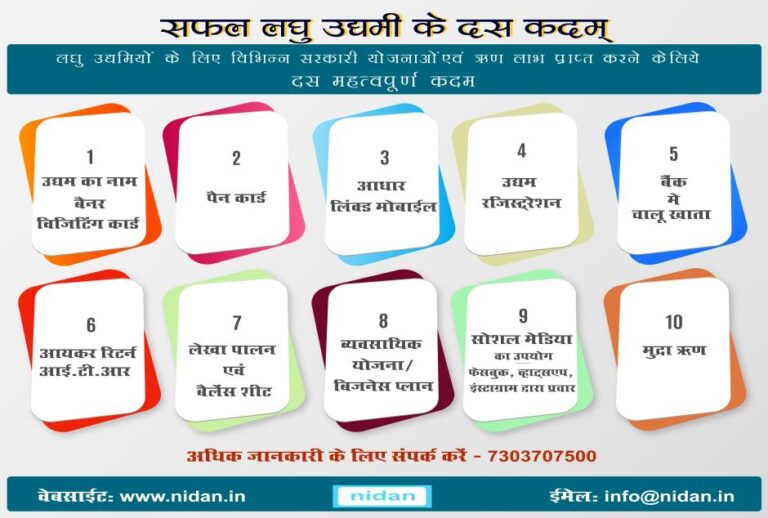
6.Awareness: – Nidan spread awareness among the self workers on business improvement and for their own development through community outreach and mouth to mouth campaign in Delhi & Patna. Here the people get registered for training.
7.Mobilization:- After spreading awareness, we started mobilizing potential self workers from the community and make them realize about their need and issues in their work which create obstacles in their own business and development.

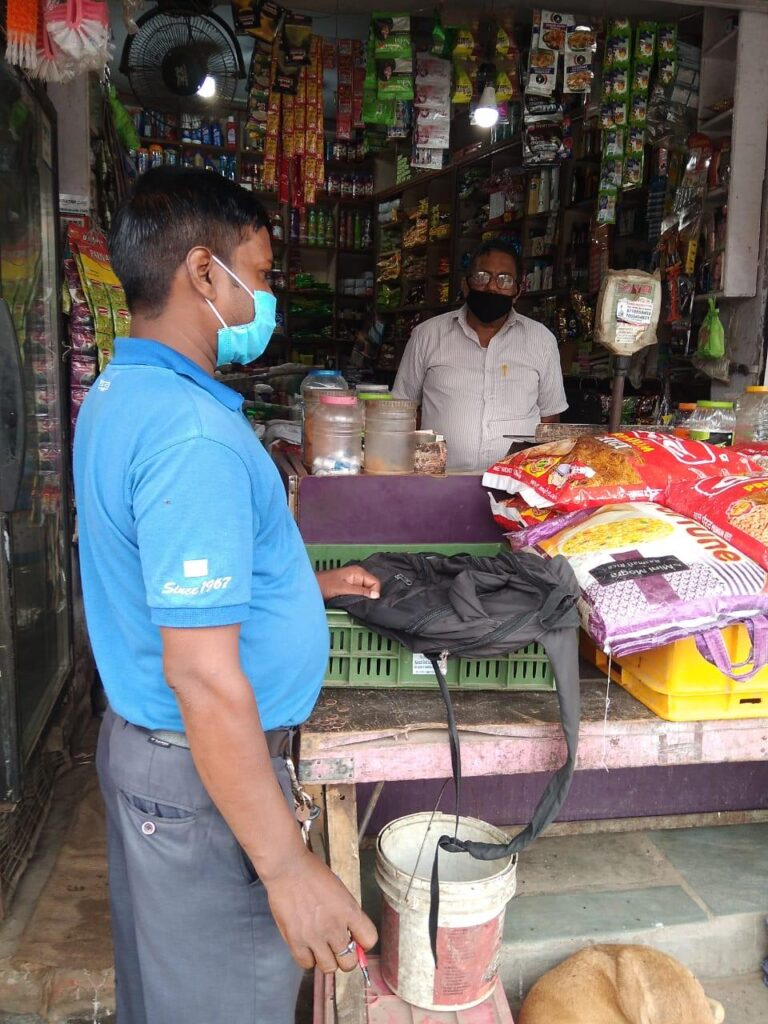
Nidan team while mobilizing the micro-entrepreneurs
8.Orientation : – A small orientation program is conducted to make them understand the theme of the training so that they are briefed on what they are going to invest their time.
9.Training: – people who registered for the training are not all eligible for training so we used screening method to filter the potential self workers and conduct training programs for them at different places.
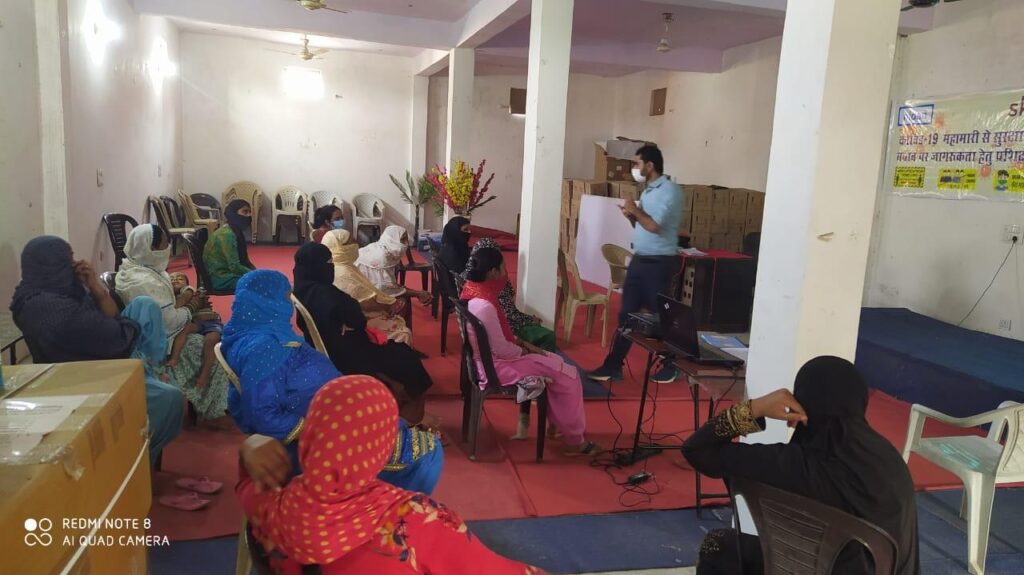
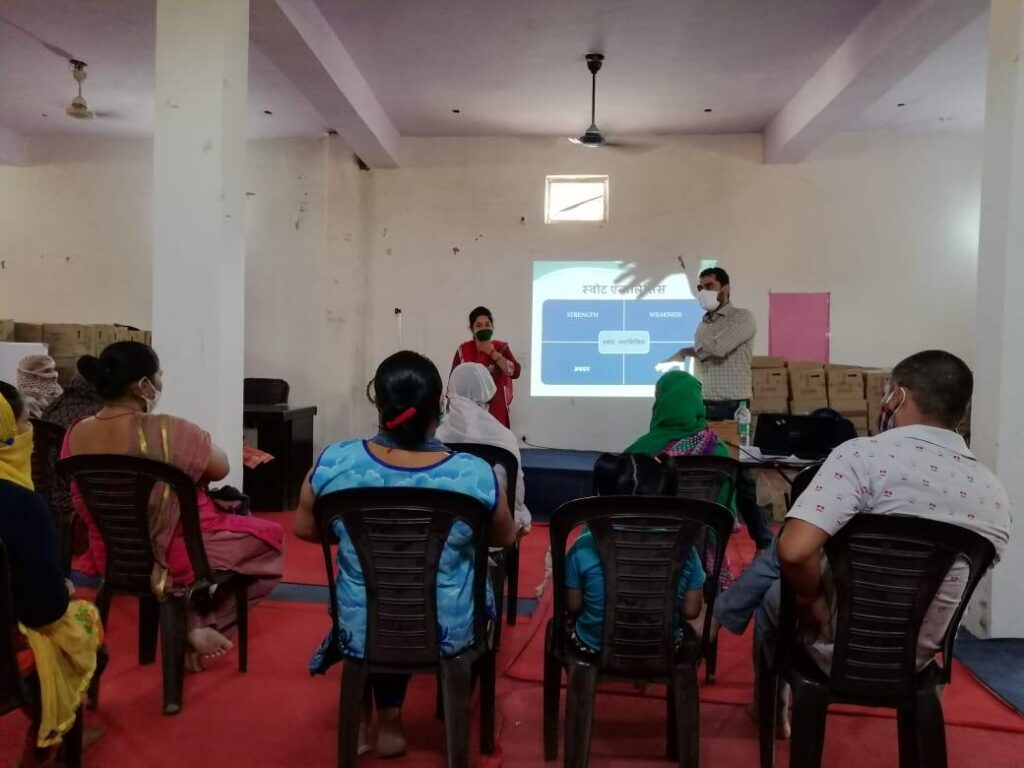
Training of micro entrepreneurs in small batches with proper social distancing and precautionary measures.
10. Handholding & Followup: We are not just facilitating training because only training cannot change their lives and people need continue interaction so after the training program, we follow up with the self workers who went through the training to explore their ideas so that they could step up in their business like knowledge of credit linkage, knowledge of required documentations while the link with financial institutions. The training helps their own development which will directly and indirectly help them to improve their business. We guide them individually as per the nature of their business and also support them in linking to the logistical support used for branding.
11. Financial Literacy Camps:- Since most of the microentrepreneurs belonged to the low income communities we ensured that they also get financially fit to expand their business houses. For that purpose as we all are aware that today cases of fraud with respect to money have increased so we ensure that the microentrepreneurs associated with this project get financially literate and can utilize their available capital in an appropriate manner. We in collaboration with Reserve Bank of India and SBI & PNB organized financial literacy camps at different areas.
12. Assistance in credit linkage – Bank credit include all relevant like MUDRA, Artisan card, Any other program for individual loans etc from organised sector viz banks, Fls and NBFCs. Our Sugam Udayami Kendra is the resource center for promoting micro enterprises through registrations and assisting them in availing credit finances and helping them in their documentation. This centre facilitates getting those Pan Cards, MSME registrations, MUDRA Loan assistance, opening bank accounts.
13. Webinars and online meetups:- As the country and the capital city witnessed the complete lockdown due to the surging cases of Covid-19 so it became really important for us to maintain our rock-solid relationship with the microentrepreneurs. And also help them to restore their livelihood which was worst hit by the pandemic. So Nidan took the initiative and invited the delegates from government ministries, banks and other core areas.
Nidan Plan to deliver –
